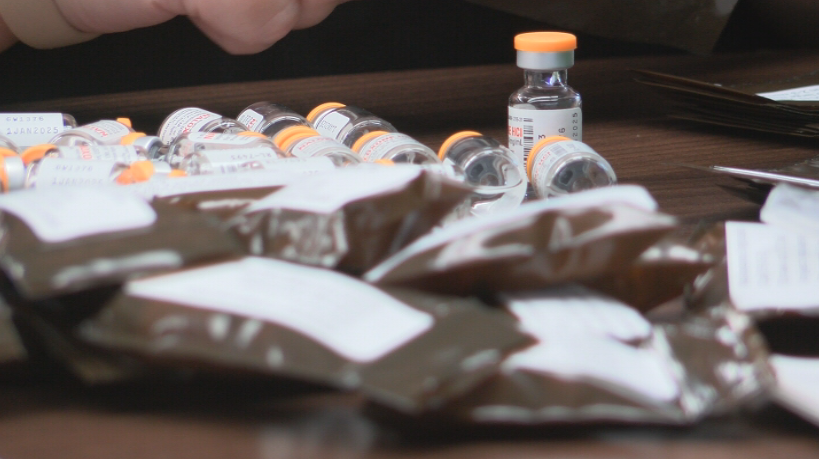Opioids with fentanyl impacting youth, communities of color
INDIANAPOLIS (WISH) — The opioid epidemic has a higher impact on young people and communities of color, with an estimated 300 people dying nationally due to overdose every day.
On Saturday, the patch of grass outside Overdose Lifeline on West 42nd Street will be packed with overdose awareness ribbons to symbolize overdose deaths. The organization says its work is to curb outcomes, break the stigma of addiction, and remember those who have died.
Overdose Lifeline’s mission is to increase access to overdose prevention and education services, while also removing the stigma of addiction and providing proper care and access to treatment for those who need it or are at risk.
“I think the more we normalize it by talking about it, the more people will recognize substance use disorder occurs because of changes in the brain. And we can help people better by doing that,” Overdose Lifeline Chief Executive Officer Justin Phillips said.
Phillips says that won’t be everyone’s story, which makes events like International Overdose Awareness Day necessary.
“We have a lot of overdoses occurring in the younger population, because of the fentanyl that is in almost every illicit substance found on the streets. We know that communities of color are just underserved, in general,” she said.
Every other week, volunteers like Matt Buckley get to work, packing 6,000 overdose recovery kits to be shipped across Indiana.
“Every time a person comes in, they might think they are doing hydrocodone or smoking only weed or molly, but it always has fentanyl in it, every single time without fail,” Buckley said.
Buckley started volunteering with Overdose Lifeline about a year and a half ago. He looks forward to volunteering because not too long ago, he might have needed one of these kits himself.
“I’m affected by recovery myself. I’m in recovery from opiates, and I see how devastating fentanyl is. Most states don’t have a program like this,” he said.
His sobriety journey wasn’t voluntary. Buckley was arrested and held in Boone County jail, which happened to offer a recovery program. Through the program, he was able to kick the habit.
6,000 nasal and intramuscular overdose reversal kits go out every single week. Buckley says he can only hope that expanded access to these kits will save more lives.
“Most overdoses, from what I can tell, (come from people who just) aren’t aware of just what they’re doing, and don’t know just how small of a dose of fentanyl would kill a person,” Buckley said.



